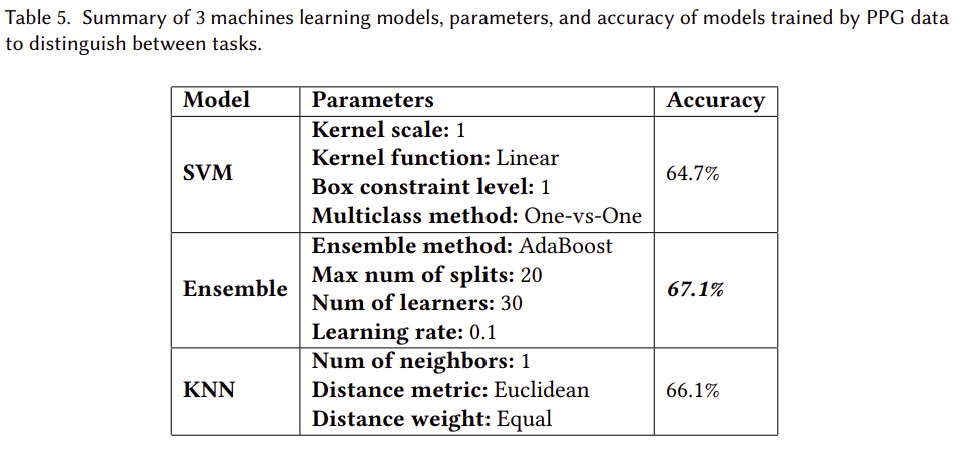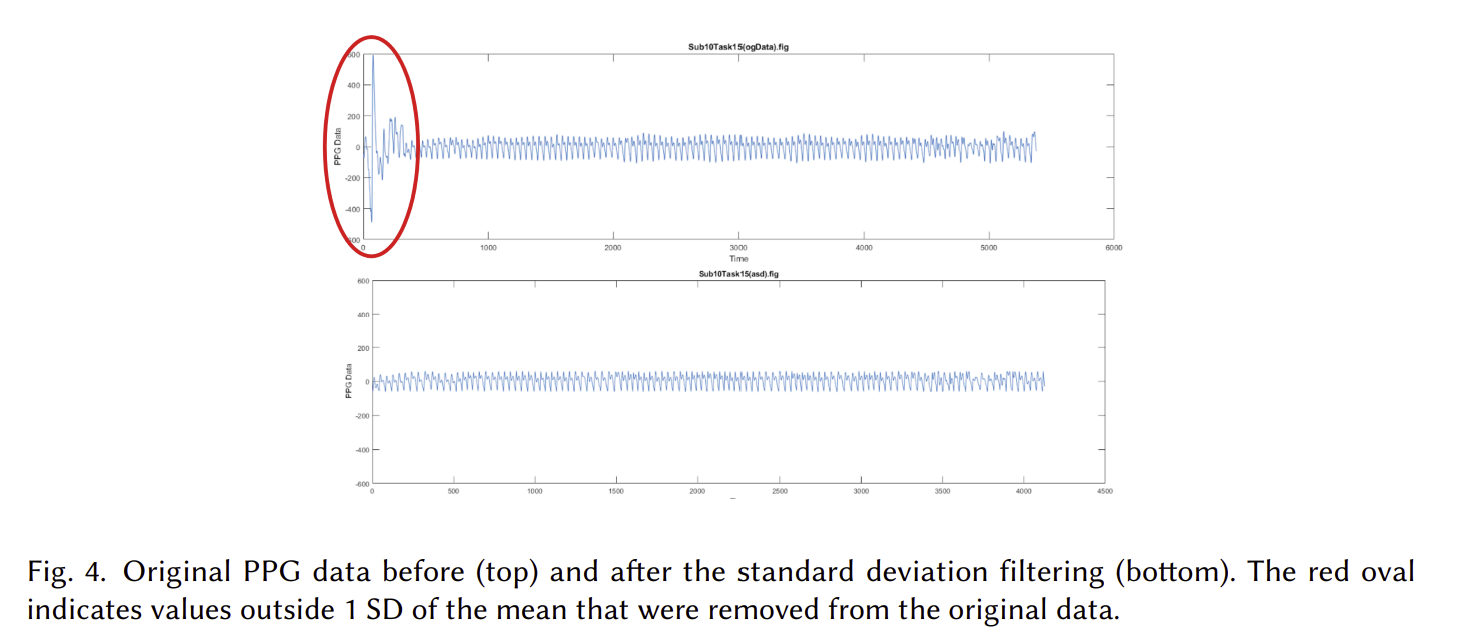Skills
Research, planning, physiological signal processing, Python, MATLAB, machine learning, teamwork, technical writing
Overview
As an undergraduate, I worked under the guidance of
several mentors and cooperated with my peers to conduct a 10 week
research experiment Monday through Friday from 9 AM to 5 PM.
This program was hosted by the Rochester Institute of Technology (RIT)
and focused on human-centered artificial intelligence.
In my specific project, I worked with Dr. Zhi Zheng from the
Department of Biomedical Engineering to see if it was possible
to distinguish different types of cognitive stressors using physiological
signal processing and machine learning algorithms.
The work that went
into this research included preparing IRB documentation to work with
human subjects, reading research literature to understand past related
works, weekly team meetings, conducting experiments, filtering data,
performing statistical analysis to analyze data, drawing conclusions,
working with machine learning techniques, writing technical reports, and
presenting research findings.
Additionally, throughout the program,
we were required to attend workshops that covered topics such as
grant writing, resources for performing statistical analysis, and
graduate student panels. On the weekends, I would usually relax,
hang out with my peers, and go to festivals in Rochester.

Research
Abstract
Everyone experiences cognitive stress in their daily lives, and the detection of stress is important to minimize adverse physical and mental health related problems. This study aims to make distinctions between and classify different types of cognitive stress using physiological signal processing. The approach taken during this research consisted of investigating photoplethysmography (PPG) and focused on distinct correlations between these physiological signals and two types of cognitive stressors: pressure in response to timed arithmetic calculations and pressure in response to multitasking with a visual stimuli. Features such as heart rate (HR), amplitude of peaks (AOP), and heart rate variability (HRV) were extracted from the PPG. After that, various machine learning models were trained to see if they could produce a binary classification of different types of cognitive stressors. Logistic regression, SVM, Ensemble, and KNN were trained using the PPG data, with Ensemble being the most accurate at 67.1%. From this experiment, it may be concluded that cognitive stress may not be classifiable just using physiological signals, however with more time, resources, and features for a machine learning model, it may be possible to distinguish cognitive stressors using physiological signal processing. The outcomes of this project may help future adaptive human-machine interaction applications to automatically track user interactions and adjust the difficulty or intensity of the workload to relieve unsolicited or excess stress.

Contributions & Challenges
Prior to this research experience, I had no background knowledge in physiological signal processing or machine learning. The 10 week time crunch made it difficult to learn everything thoroughly, however I now understand the very basics of how to filter physiological signal data to get rid of motion artifacts, and how to use MatLab to train various types of machine learning models. I still have a little understanding of how to optimize machine learning models, however, I have a better understanding of what they are and what they are used for.
I also learned new techniques such as how to read and parse CSV files using both Python and MatLab. For the research, I wrote custom Python and MatLab programs to parse, graph, and filter the necessary data from thousands of files needed for our data analysis. Before this research program, I had no knowledge of MatLab. However, I am happy to say that because of my previous programming experience, I was able to pick up MatLab on the fly and that this experience has given me the confidence that I can pick up any computer science language quickly if needed.

Overall Thoughts
Overall, I would say that my time at RIT was definitely a learning experience. I’ve grown both academically and personally, and have gained confidence in my abilities to take initiative, problem solve, and learn new skills and techniques quickly. I am sure that this confidence that I’ve gained from this experience will help me wherever I choose to go in the future.